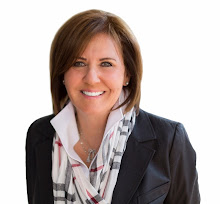If you're thinking about buying a house or condo as an investment property, market conditions are definitely in your favour. While the resale housing market has seen a tremendous amount of activity from first-time buyers in the past year, it's also a perfect time for existing homeowners to invest in secondary residential properties.
With record-low interest rates and significantly lower prices it's hard to go wrong - unless, of course you lack the financial means to make the investment. After all, you have to be ready to meet all the obligations that come with owning more than your principal property. For instance, keep in mind that if you intend to rent out the second property, you'll also have to be prepared to deal with tenants and handle maintenance costs.
Leverage
Secondary home ownership is an attractive investment option because it gives you even more leverage than you have with your principal residence. Leverage is when a relatively small amount of your money controls a much larger asset - like a property.
The more leveraged you are, the greater the financial return on your down payment becomes if the value of your property increases. There are very few other investments which can be purchased with such a small percentage of your own money.
Getting Financing
You should be aware that many lenders place non-owner occupied deals in the high-risk category and it's not that unusual to find lenders who will not finance rental units at all - or those who will only finance them if they are insured.
Obviously, lenders will want to know whether the property will carry itself. (Is there sufficient rent to cover the mortgage payment?) Don't make the mistake of assuming that a rental income of $500 per month will carry a mortgage payment of $500 per month. Only a portion of the rent is used to pay the mortgage; the remainder must cover taxes, maintenance, vacancy, bad debt and expenses.
Costs
You should also be aware that the cost of obtaining a mortgage (for legal and appraisal fees) on a non-owner occupied property can be higher than the cost of obtaining a mortgage on an owner-occupied property, when more than one unit - such as a duplex or triplex is involved. Interest rates charged on rental properties might also be higher because some lenders view these properties as being a higher risk.
As mentioned above, the main responsibility of having a second property is being able to carry it financially. And if you're like most people, you'll probably have to rent it to someone as a result.
This is also a great deal of responsibility because you will have to maintain the property in addition to your own principal residence, and you'll be responsible for finding tenants who you trust and feel comfortable with.
This is also a great deal of responsibility because you will have to maintain the property in addition to your own principal residence, and you'll be responsible for finding tenants who you trust and feel comfortable with.
If you'd like more information about purchasing any type of residential property: from a first home to a second property or more, contact Elli or leave a message on the blog.





